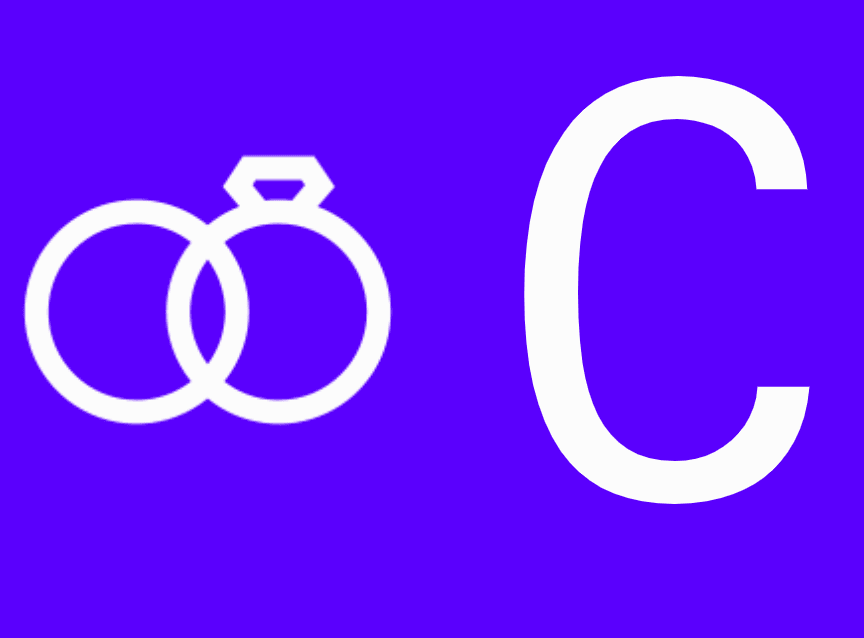Couples therapy or marriage counseling
Marriage counseling and couples therapy are two common suggestions for couples when facing relationship difficulties. Although in the opinion of many people, these two categories are similar, but in reality they are slightly different.
Many of us tend to use the terms marriage counseling and couples therapy interchangeably, but there is a reason for this confusion. Marriage counseling and couples therapy are both services that are provided to couples who are experiencing tension in their relationship.
During this process, couples talk to a professional or someone with a degree and education about marriage and relationship. Both processes may seem similar, but they are different. When you look up the meanings of marriage counseling and couples therapy in the dictionary, you will realize that these two have different meanings.
What does marriage counseling include?
Marriage counseling helps couples deal with challenges in their lives together. The goal is to return the relationship to normal. In this process, the focus is on the present and the problems that occur frequently. Marriage counseling provides the possibility to talk about differences and areas of compromise.
More than anything else, the job of counseling is to help find the problems to build a stronger and happier relationship. help you have intimacy in the relationship and Counseling also helps couples master the art of communicating with each other, creating and rekindling the fire of trust between couples.
Does counseling have results? Sure. Counseling can be very effective in helping couples cope with the tensions that have arisen. Marriage counseling is usually a short-term process, while couple therapy is a therapeutic process that can last several sessions.
In other words, couples therapy for married couples also includes counseling, and for this reason, the definitions of these two processes are often confused.
What does couple therapy include?
On the other side of the story, couple therapy looks at the root of problems. This means reviewing the past and finding the source of disputes and disputes. What makes couple therapy more special than counseling is that the process of reviewing the past can lead to the personal problems of each party to better understand their behavior in the relationship.
Well, let’s talk about the definition of couples therapy. The goal of couples therapy is to answer the question, “Why do couples have such problems?” And it seeks to understand what specific areas of the relationship should be worked on.
For example, a couple who is going through a difficult time because one of them has an illness may need couples therapy to help them learn how to properly cope with the situation.
Of course, this does not mean that only couples with such problems should undergo couples therapy. Couples can go to couple therapist to solve their compatibility problems with each other and get guidance from an expert counselor.
The problem is that couples therapy is considered a kind of stigma in society and this stigma has a very negative effect. Instead of finding a solution, couples may avoid treating their problems. In fact, couples avoid going to couple therapists for fear of people’s judgments and lose the chance to improve their relationship. For these couples, the main solution is placed as the last option. couples therapy vs marriage counseling
The role of the marriage counselor compared to the couple therapist
To examine this comparison more closely, we must first know the answer to this question:
What does a marriage counselor do in counseling sessions?
In marriage and relationship counseling, the role of the counselor is to listen to the problems and help manage the discussion between the couple. The counselor as a mediator allows the couple to create an organized relationship. In fact, a church leader can also serve as a marriage counselor.
The role of a consultant is like the role of a referee in a game, in that he must prevent any of the parties from arguing, shouting or behaving violently.
With the agreement of both involved parties, marriage counseling can help establish new relationship rules to reduce the amount of conflict. couples therapy vs marriage counseling
A counselor can also help establish boundaries. For example, if one of the parties has a habit of snooping on the other person’s phone, the counselor can help solve this problem by offering to respect each other’s privacy and putting a lock on the phone if both parties agree.
A marriage counselor can play a role in these decisions, which of course depends on certain factors. On the other hand, couple therapists are trained and certified to provide all mental health services that affect relationships.
In couple therapy, the psychologist can comment on depression and its effect on behavior in the relationship. However, if the complications are serious, therapists refer patients to psychiatrists.
Therapists go through a series of regular processes to solve the problems of their clients. Basically, the treatment process consists of four stages:
1: The therapist focuses on a specific problem. This problem can be related to sex, drug or alcohol use, betrayal or jealousy.
2: The therapist intervenes effectively to improve the relationship.
3:Third step: In this step, the therapist states the goals of the treatment.
4:The fourth step: Finally, the therapist, together with the client, finds a solution to the problem by expecting a change in behavior during the process.
What is the cost of marriage counseling and couples therapy?
On average, the cost of marriage counseling varies from – to – thousand tomans for each session lasting 45 minutes to one hour. For couple therapy, the cost of each 45 to 50 minute session is between – to – thousand tomans. couples therapy vs marriage counseling
To find a marriage counselor, it is better to ask for help from your friends who have recently had a meeting with a marriage counselor, or to register an appointment through the button below.
Marriage counseling and couples therapy are both used to understand the underlying issues in the relationship and resolve conflicts. Although they are not exactly synonymous with each other, both are effective in improving relationships.



